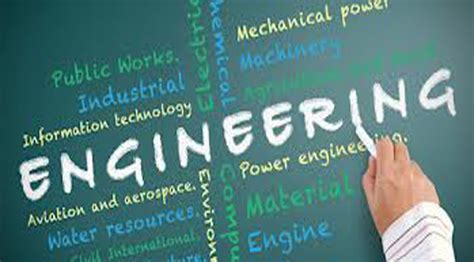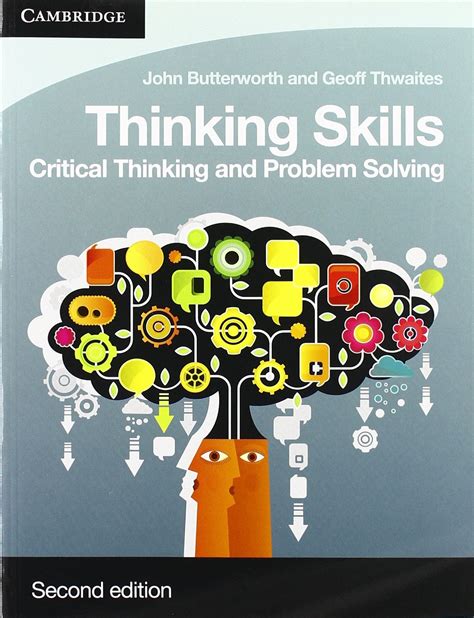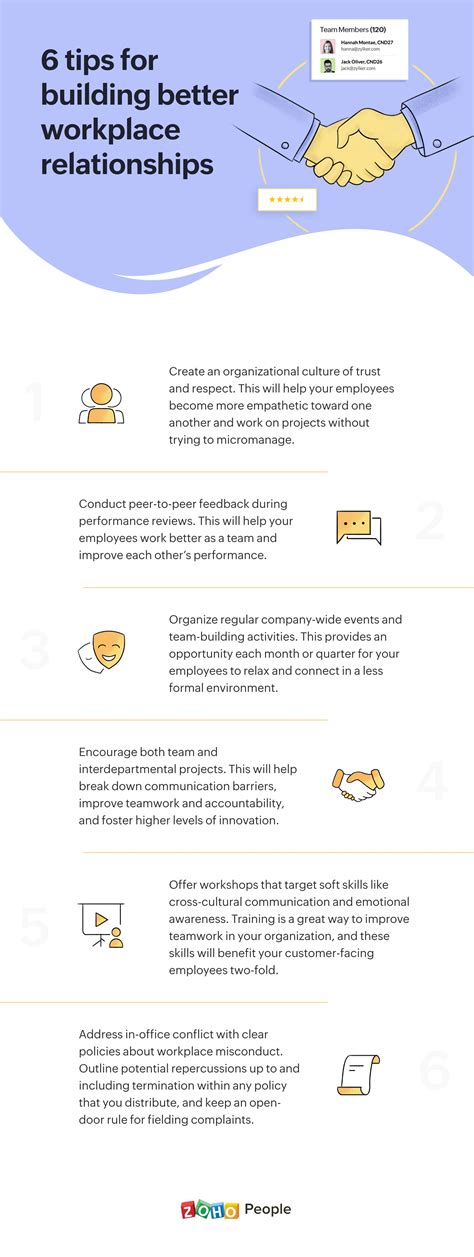In a world shaped by constant innovation and technological advancements, the dream of forging a successful career in engineering has captured the hearts and minds of many aspiring individuals. The allure of designing groundbreaking solutions, contributing to society, and pushing the boundaries of what is possible fuels the passion and determination of these ambitious individuals.
Stepping into the realm of engineering is like embarking on a captivating voyage, a journey that journeys through a maze of technical challenges and theoretical concepts. It is a domain where intellect and craftsmanship merge together to unveil marvels that shape our world. Building a strong foundation, both academically and experientially, is paramount for those who wish to carve their path towards engineering excellence.
Engineering, at its core, is a symphony of imagination, problem-solving, and relentless dedication. With ardent hearts and minds, aspiring engineers explore the multifaceted realms of mathematics, physics, and computer science. These individuals possess an ardent desire to explore the intricacies of these fields, dissect every problem, and unravel innovative solutions that can transform abstract ideas into tangible realities.
Discovering the Various Engineering Disciplines

Exploring the vast world of engineering opens up a realm of possibilities, where one can carve a unique path towards their dream career. The field of engineering encompasses a diverse range of disciplines, each with its distinct focus and contributions to society. Understanding these different engineering branches will not only enhance one's knowledge but also help in making informed decisions about which field aligns best with their interests and aspirations.
1. Mechanical Engineering: This discipline revolves around designing and manufacturing mechanical systems, such as engines, machines, and tools. It combines principles of physics and materials science to create innovative solutions for various industries, ranging from automotive and aerospace to energy and robotics.
2. Civil Engineering: The world around us is shaped by civil engineers. They are responsible for the planning, design, construction, and maintenance of infrastructure, including buildings, bridges, roads, dams, and water supply systems. Civil engineering plays a crucial role in providing safe and efficient infrastructure for communities to thrive.
3. Electrical Engineering: From powering our homes and businesses to developing advanced technologies, electrical engineers are at the forefront of innovation. They work with electrical systems, electronics, and telecommunications, designing and implementing solutions that meet the growing demands of our modern society.
4. Chemical Engineering: If you have a passion for chemistry and problem-solving, chemical engineering might be the path for you. This discipline involves the application of chemical principles to design and optimize processes for producing various chemicals, pharmaceuticals, materials, and energy sources.
5. Aerospace Engineering: The aerospace industry pushes the boundaries of human achievements, and aerospace engineers play a vital role in this pursuit. They design and develop aircraft, spacecraft, and satellites, focusing on aerodynamics, propulsion systems, materials, and safety measures.
6. Environmental Engineering: As the world becomes more aware of environmental concerns, the demand for environmental engineers is on the rise. They work towards developing sustainable solutions for environmental challenges, such as water and air pollution, waste management, and renewable energy sources.
7. Computer Engineering: In the digital age, computer engineers are instrumental in developing and advancing technologies that drive our interconnected world. They combine elements of electrical engineering and computer science to design hardware and software systems, ensuring seamless communication and data processing.
These are just a few examples of the many engineering disciplines available. Each field presents its unique opportunities and challenges, attracting individuals with diverse interests and skill sets. By understanding the various engineering disciplines, aspiring engineers can better navigate their path towards achieving their dreams and making a meaningful impact on society.
Building a Solid Base in Mathematics and Science
Establishing a strong knowledge foundation in mathematics and science is crucial for those with aspirations of thriving in the field of engineering. Without a strong grasp of these fundamental subjects, individuals may face difficulties in navigating the complex world of engineering, as it heavily relies on mathematical and scientific principles.
To embark on a successful journey towards a career in engineering, it is essential to develop a deep understanding of mathematics and science concepts and their practical applications. Proficiency in mathematics allows engineers to effectively analyze and solve complex problems, while a solid understanding of scientific principles enables them to apply these concepts to real-life engineering challenges.
A strong foundation in mathematics equips aspiring engineers with the skills needed to calculate quantities, analyze data, and conduct measurements accurately. It also helps in comprehending and interpreting graphical representations, formulas, and equations, which are widely used in engineering disciplines. By mastering essential mathematical concepts such as algebra, calculus, geometry, and trigonometry, individuals gain the ability to think critically and apply mathematical reasoning to engineering problem-solving.
Likewise, a solid understanding of scientific principles, including physics, chemistry, and biology, provides aspiring engineers with a crucial framework for comprehending the physical world. Knowledge in these subjects allows engineers to understand the forces, energy, and materials that govern the behavior of structures and systems. It enables them to design and optimize solutions, predict outcomes, and make informed decisions based on scientific principles.
Continuous learning and practice in mathematics and science lay the groundwork for an engineering career. Engaging in relevant coursework, collaborating in hands-on experiments, and seeking out opportunities for practical application of these subjects help aspiring engineers build the knowledge and skills necessary for success in the field. By establishing a solid base in mathematics and science, individuals can embark on a fulfilling journey towards becoming accomplished engineers, ready to tackle the challenges of the profession.
Nurturing Problem-Solving and Critical Thinking Skills

Developing and honing problem-solving and critical thinking skills is an essential aspect of pursuing a successful career in engineering. Engineers must possess the ability to analyze complex situations, think critically, and devise innovative solutions to various challenges.
One way to nurture problem-solving skills is by encouraging a proactive approach to learning. Rather than simply memorizing facts and formulas, aspiring engineers should be encouraged to ask questions, seek understanding, and actively engage in problem-solving exercises. This approach fosters a curious and analytical mindset, enabling individuals to approach challenges with a systematic and logical perspective.
Furthermore, critical thinking skills can be nurtured through exposure to diverse perspectives and ideas. Encouraging individuals to explore different viewpoints and consider alternative solutions fosters creativity and empathy within the problem-solving process. Collaborative projects and discussions can provide opportunities for individuals to challenge conventional thinking and develop innovative solutions to engineering problems.
In addition, practicing effective communication is crucial for engineers to articulate their ideas, collaborate effectively, and present their solutions. Enhancing communication skills, both written and verbal, enables engineers to convey complex concepts to non-technical stakeholders, work collaboratively in teams, and present their ideas confidently.
- Engage in real-world problem-solving exercises
- Encourage curiosity and active learning
- Foster creativity through exposure to diverse perspectives
- Develop effective communication skills
- Cultivate a logical and analytical mindset
In conclusion, nurturing problem-solving and critical thinking skills is essential for aspiring engineers. By fostering a proactive approach to learning, encouraging exposure to diverse perspectives, and enhancing communication skills, individuals can develop the necessary skills to excel in the field of engineering.
Gaining Practical Experience through Internships and Projects
One valuable avenue for aspiring engineers to gain practical experience and enhance their skills is through internships and projects. These opportunities provide hands-on learning experiences and allow individuals to apply their theoretical knowledge to real-world scenarios.
Participating in internships gives students and novice engineers a chance to work alongside professionals in their field, observe their work processes, and gain insight into the industry. By immersing themselves in a professional environment, interns can develop a deeper understanding of engineering practices, teamwork dynamics, and project management techniques.
Internships also offer an opportunity to work on challenging projects that align with an individual's interests and career goals. These projects allow interns to apply their engineering knowledge in practical ways and solve real problems. Through hands-on experience, they can enhance their technical and problem-solving skills, as well as develop a sense of self-confidence in their abilities.
Additionally, participating in engineering projects outside of formal education programs can further bolster practical experience. Engaging in personal or group projects, such as building prototypes, designing systems, or conducting research, enables individuals to actively explore their creativity and expand their understanding of engineering principles.
These extracurricular projects provide ample opportunity for experimentation, innovation, and collaboration. They allow individuals to explore different branches of engineering, discover new interests, and gain exposure to diverse projects and challenges. Undertaking such projects can help individuals stand out in the highly competitive field of engineering and demonstrate their commitment and passion for the profession.
In conclusion, internships and projects offer invaluable opportunities for aspiring engineers to gain hands-on experience, apply their theoretical knowledge, and develop essential skills for their future careers. By actively engaging in these experiences, individuals can increase their chances of success and set the foundation for a rewarding engineering journey.
Building Connections: Fostering Relationships in the Engineering Community

In the pursuit of a successful career in engineering, networking and mentoring play crucial roles in shaping one's journey. Building connections within the engineering community not only allows individuals to expand their professional circle but also provides them with valuable guidance and support. By embracing the power of networking and seeking mentorship, aspiring engineers can enhance their knowledge, gain exposure to diverse perspectives, and uncover new opportunities.
Networking:
Networking in the engineering community involves establishing and nourishing relationships with professionals in the field. It goes beyond traditional social events and extends to online platforms and professional conferences. By networking effectively, engineers can gain access to a wide range of resources, including job opportunities, research collaborations, and industry insights. Engaging in conversations, participating in workshops, and joining engineering societies are just a few ways to expand one's network and forge meaningful connections.
Mentoring:
Mentoring is a vital component of professional growth. Mentors, who are experienced professionals in the engineering field, offer guidance, support, and knowledge to help aspiring engineers navigate the challenges they may face. Mentorship programs, both formal and informal, provide an invaluable opportunity for individuals to benefit from the expertise of others, learn from their experiences, and receive personalized advice. Through mentorship, aspiring engineers can develop critical skills, gain industry insights, and cultivate a strong professional identity.
The Benefits:
Networking and mentoring offer several key benefits to those embarking on a career in engineering. Firstly, individuals can tap into a wealth of knowledge and expertise by connecting with professionals who have already traversed similar paths. This exposure to diverse perspectives allows aspiring engineers to broaden their understanding, think critically, and innovate. Moreover, networking and mentorship can lead to fruitful collaborations, opening doors to new opportunities, such as internships, research projects, or even job placements. Lastly, by building a supportive network and accessing mentorship, individuals can foster resilience, gather encouragement, and steer their engineering careers in the direction of success.
Conclusion:
Networking and mentoring are integral elements of the engineering community, playing a pivotal role in shaping the path to success. By actively engaging in networking activities and seeking out mentors, individuals can expand their knowledge, establish meaningful connections, and strengthen their professional identities. Embracing the power of networking and mentorship enables future engineers to unlock a multitude of opportunities, paving the way for a fulfilling and prosperous career.
FAQ
What skills are necessary to become a successful engineer?
To become a successful engineer, it is essential to have strong problem-solving skills, analytical thinking, and a solid understanding of mathematics and physics. In addition, good communication skills, creativity, and the ability to work well in a team are also crucial for success in the engineering field.
What are the educational requirements to become an engineer?
The educational requirements to become an engineer vary depending on the specialization. Typically, a bachelor's degree in engineering or a related field is required. Some engineering positions may require a master's degree or even a Ph.D. Additionally, obtaining a professional engineering license may be necessary to advance in certain career paths.
How can I gain practical experience in engineering?
Gaining practical experience in engineering can be done through internships, co-op programs, or volunteering in engineering-related projects. These opportunities allow aspiring engineers to apply their theoretical knowledge in real-world situations, develop practical skills, and make valuable connections in the industry.
What are the potential career paths for engineers?
Engineers have a wide range of potential career paths. Some common career options include civil engineering, mechanical engineering, electrical engineering, and chemical engineering. Within these fields, engineers can work in various industries such as construction, automotive, aerospace, or energy. Additionally, engineers can pursue research and development roles, project management positions, or even become entrepreneurs and start their own engineering firms.
What are the future prospects for engineering careers?
The future prospects for engineering careers are generally positive. As technology continues to advance and new challenges arise, the demand for skilled engineers is expected to grow. Additionally, fields such as renewable energy, environmental engineering, and biotechnology are likely to offer promising career opportunities for engineers in the coming years.
Why should I consider a career in engineering?
Engineering offers a wide range of opportunities for problem-solving, creativity, and making a positive impact on society. If you enjoy math, science, and critical thinking, a career in engineering can be incredibly rewarding.



